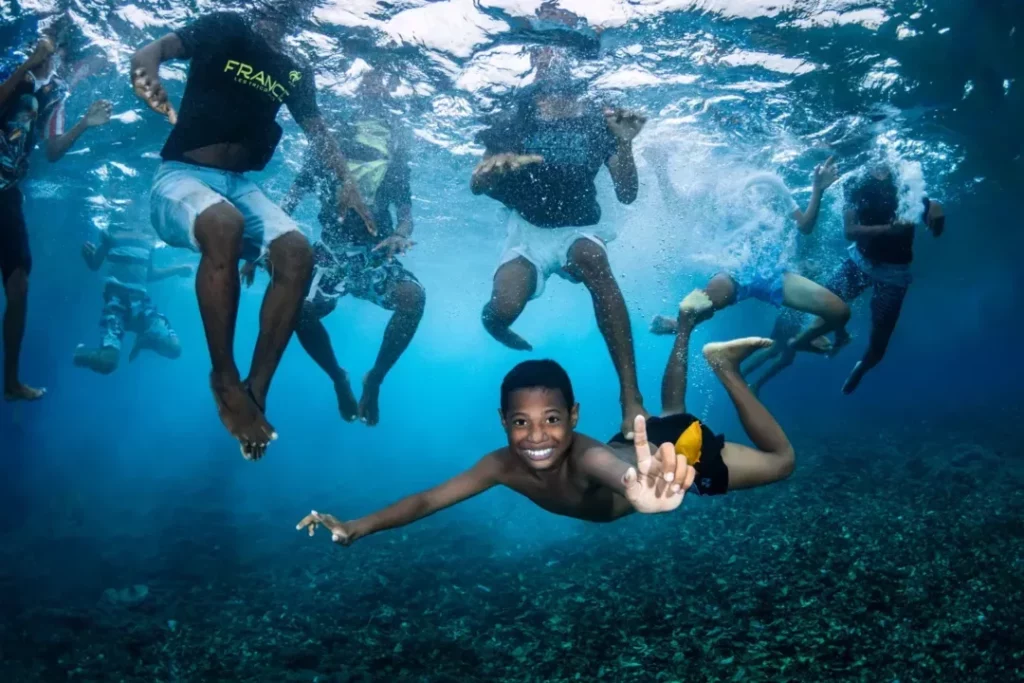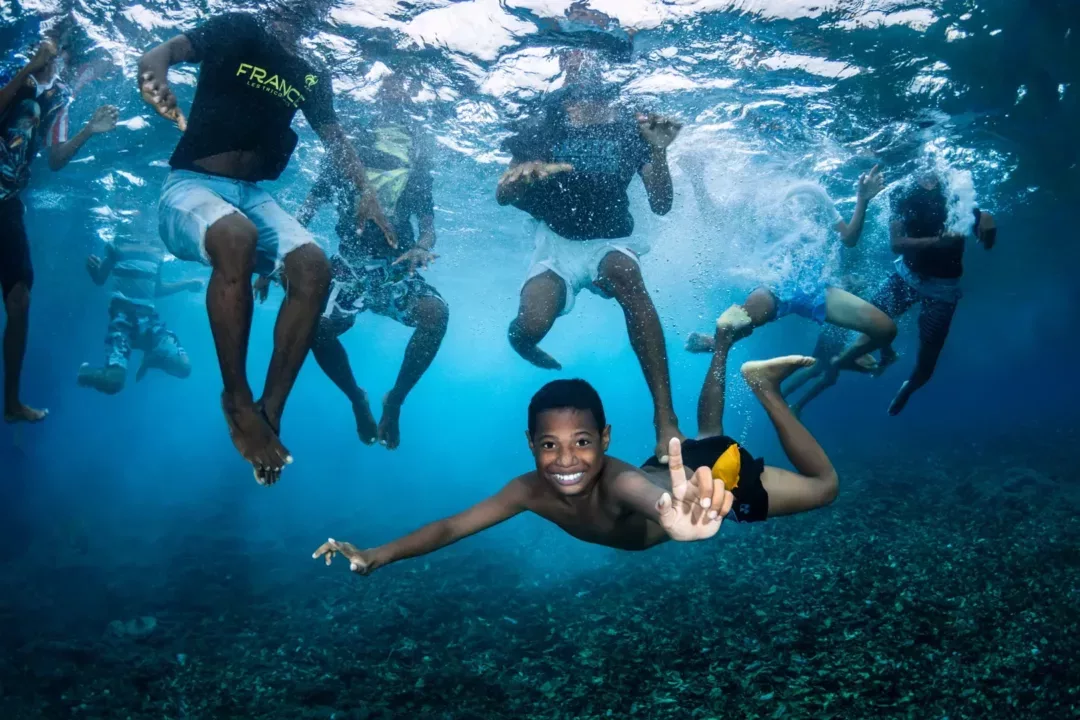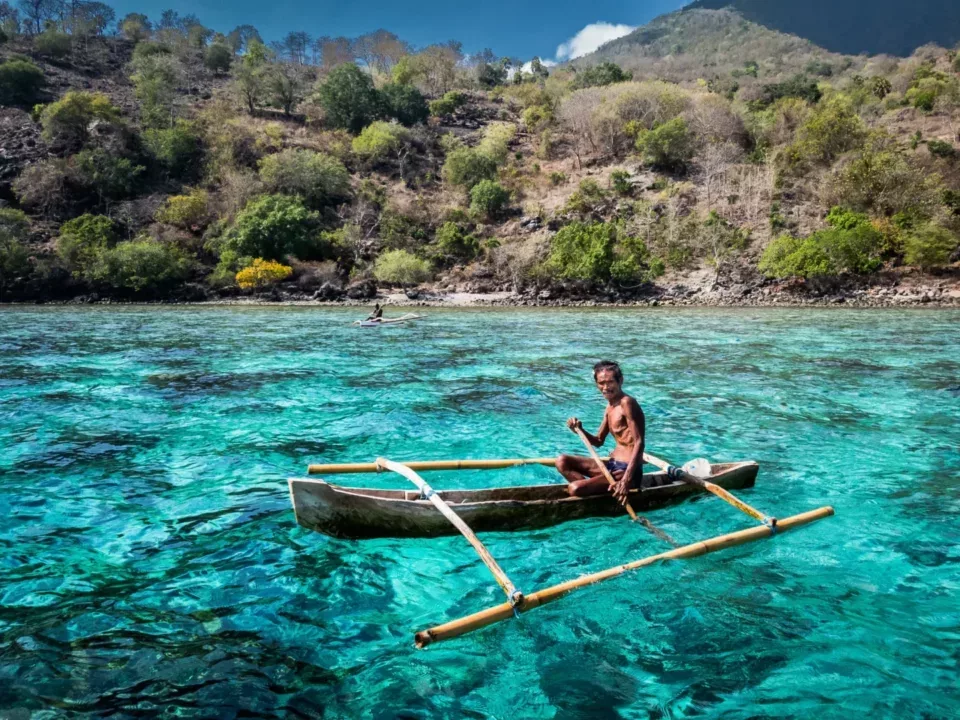As the world observes the International Day of the World’s Indigenous Peoples (August 9), a day dedicated to honouring the rich cultures, traditions, and contributions of indigenous communities globally, a poignant connection emerges between their wisdom and the efforts to conserve our planet including coral reefs and their associated ecosystems. This year’s theme highlights the critical role that indigenous youth play as agents of change for self-determination.
Coral reefs are home to over 25% of marine species and are valued up to US $9.9 trillion per year. They are delicate and diverse ecosystems that play a crucial role in supporting marine life, providing food security, and offering livelihoods to over 1 billion people worldwide, including countless communities around the world. However, these remarkable natural wonders are under threat due to climate change, pollution, and overfishing.
In light of these challenges, the International Coral Reef Initiative (ICRI) has formulated a comprehensive Plan of Action 2021 – 2024: Turning the Tide for Coral Reefs to address the need for greater collaboration and action at the international level to conserve, protect and restore coral reefs. A central tenet of this initiative is for ICRI to engage Indigenous and local community leaders, promoting efforts to ensure the effective participation of Indigenous Peoples and Local Communities in decision-making at all levels, whilst expanding the coral reef community to include Youth. Under Theme 4, Diversity and Inclusion: Expanding the coral reef community, ICRI aims to:
- Collaborate with indigenous people and seek to incorporate indigenous and local knowledge into policies and management plans.
- The first step in this process must be listening. ICRI will work to involve communities and learn from their wisdom, where there is interest and consent to be involved.
- Connect with youth audiences.
- More than half of the global population is now under 30, with many countries struggling to educate their growing numbers of youth. According to the UN World Programme of Youth, children and young people are particularly vulnerable to climate impacts, especially when it comes to food security and health. Young people can be informed and motivated to protect Nature but need to be empowered to do so.

ICRI recognises that indigenous knowledge and practices hold the key to effective reef management. Their indigenous and local knowledge passed down through generations, enshrines sustainable resource use, ecosystem health indicators, and strategies for coping with environmental changes. Integrating these perspectives with scientific research results in a holistic approach that can better protect these fragile ecosystems.
Indigenous communities have a significant stake in the health of coral reefs, as many rely on them for subsistence, inherent traditional values, where the cultural principles are engrained within their societies, and economic sustenance. By engaging these communities, ICRI aims to create a collaborative network that fosters the exchange of knowledge and encourages the active participation of indigenous peoples in decision-making processes related to reef management.
The International Day of the World’s Indigenous Peoples serves as a reminder of the importance of preserving cultural diversity and embracing sustainable practices. By listening to indigenous and local community leaders and knowledge holders, ICRI aims to develop, (with knowledge holders’ permission), an inventory of best practices and knowledge as well as to create guidelines and suggestions for how to solicit Indigenous and local community knowledge into policies and management plans. ICRI’s Plan of Action Theme 4 recognises the crucial role that indigenous wisdom plays in safeguarding not only our planet’s biodiversity but also the future of our coral reefs.
As the world faces interconnected environmental challenges, recognising, and respecting the knowledge of indigenous communities is not just a matter of principle; it’s a necessity for creating a sustainable and equitable future. This International Day, join ICRI in recognising, and celebrating the wisdom and contributions of indigenous peoples – reaffirming our commitment to working together for the well-being of both cultural heritage and the environment.


